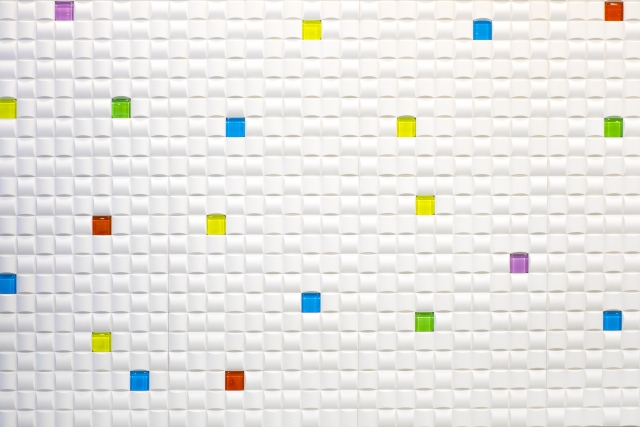Residence Card in Japan
Residence Card in Japan
Just as every Japanese national has an identity card, foreign nationals in Japan are also issued a Residence Card for both a proof of their legal stay and the residence management. Of course foreigners' legal stay can be confirmed by the landing permit on their passports, but the later change of their visa status can't be reflected, neither their residence. Besides walking with a passport along is inconvenient and risky.
The Residence Card, which has an IC chip embedded and the bearer's basic information printed on, is issued by the Ministry of Justice. It replaced the previous Alien Registration Card on July 9, 2012, which is issued by local authorities. It is only issued to mid- and long-term residence status holders at the airport when landing Japan at the very first time, or at the regional immigration office when renewal, extension, change, or reissuance of the card.
Who are issued a Residence Card?
Residence Card is only issued to a foreign national staying in Japan for a mid- to long-term, but the following cases should be excluded:
・Foreigners granted permission to stay for 3 months or less
・Temporary Visitor visa holders
・Diplomat or Officials visa holders
・Foreigners recognized by the Ministry of Justice as equivalent to one of the above three
・Special permanent residents
・Foreigners with no status of residence
Information contained on a residence card
The Residence Card contains the important part of the bearer's information held by the Minister of Justice, including the following on the surface:
・Name, gender
・Birth date
・Nationality or region of origin
・Address of main residence in Japan
・Status of residence, period of stay, and date of expiration of period of stay
・Type and date of permission
・Number, date of issue, and date of expiration of resident card
・Whether or not he or she can work
・A photograph if the bearer aged 16 or over
And the following information on the back surface:
・The space for address of residence and its change
・Information about the permission to engage in activities other than the original visa
・Whether this Residence Card is during renewal or not
It always contains the latest information of the bearer as if any changes in the recorded items occur, he or she is obliged to notify the change.
If place of residence is changed
There is no need to change the Residence Card, instead, the new residence should be recorded on the back surface of the Residence Card.
-If someone is newly arriving in Japan (with no residence in Japan before)
The bearer must visit the municipal office where he or she lives to notify place of residence within 14 days of establishing a place of residence, with his or her Residence Card, or passport if a Resident Card was not issued yet.
-If someone is moving into a new address
The bearer must visit his or her new municipal office with the Residence Card to notify the new place of residence within 14 days of moving.
If other items are changed
The bearer is required to notify the change at a regional immigration office within 14 days of the change. A new Residence Card with the latest information will be issued on the day of notification or application and the old card will be punched a hole. Required documents include his or her passport with the latest information recorded, photo, and the current Residence Card and other documents to prove the change. For example if name changed because of marriage, certificate of marriage and a copy of the family register if married to a Japanese national.
What if lost or theft of Residence Card?
The bearer should apply for a reissue of the Residence Card at the regional immigration office after notifying the police station. In principle the application should be taken within 14 days of the day on which the fact of loss is known, or the date of the first entrance into Japan in cases where he or she knows the fact of loss while outside Japan. And the new Residence Card will be issued on the same day in principle.
The required documents include:
・Application form for reissuance of the Residence Card due to loss
・A photograph
・Documents to certify that his or her Residence Card is lost
・A bulletin of loss or a theft bulletin certificate or a disaster victim certificate from the police station, etc. Otherwise the statement of reasons describing why none of those documents can be submitted, and stating the situation in which the Residence Card has been lost
・Passport or certificate of status of residence
・If the bearer has the permit to engage in activities other than that permitted under the status of residence, represent the permit.
・If the bearer wishes to have his or her name indicated both in alphabet and in kanji characters, an application for Indication of Name Using Kanji Characters on the Residence Card will be needed.
What kind of Residence Card is allowed to work in Japan?
From the Residence Card the basic information of the bearer and his or her living status in Japan can be known, so can the working status. As said above, status of residence and whether or not he or she can work is recorded on the surface of Residence Card, and the permission to engage in other activities on the back surface.
To work full-timely in Japan, only statuses of residence with work permit are allowed, including:
・All the Specified visa: Spouse or child of Japanese national, Spouse of permanent resident, Long-term resident, Designated activities, Permanent Resident. These status holders can work in any industry.
・Highly skilled professional visa
・All the working visa like Engineer/Specialist in Humanities, International Services, Skilled labor, Specified skilled worker, Technical intern training, etc. However holders can only work in the industry that they claimed.
To work part-timely in Japan,
・All the Specified visa holders can do part-time work without any restrictions.
・Highly skilled professional visa and all the working visa holders, have to obtain Permission to Engage in an Activity Other Than That Permitted by the Status of Residence Previously Granted before first, and they are not allowed to work part-timely over 28 hours per week or in the entertainment industry.
・General visa holders like Student, Training, Dependent can also do part-time work with the above permission and the same restriction.




